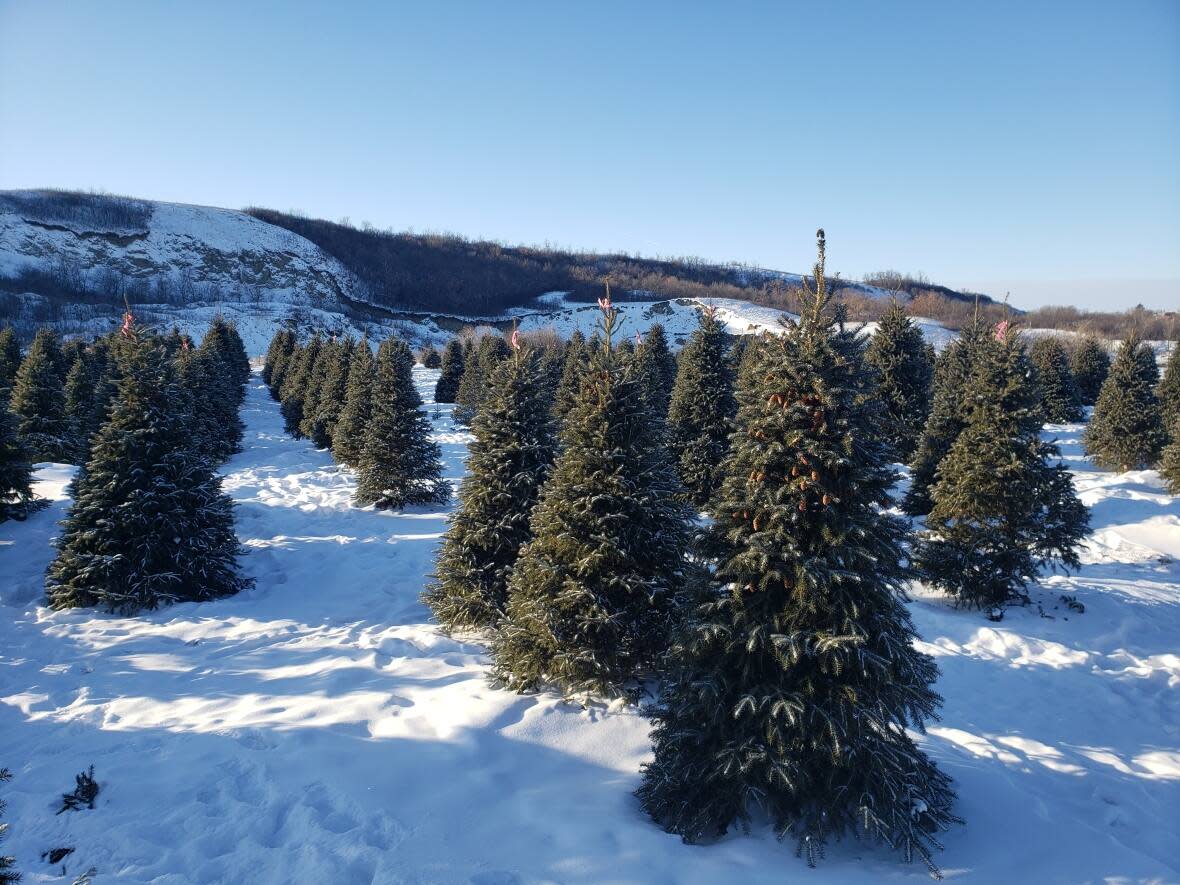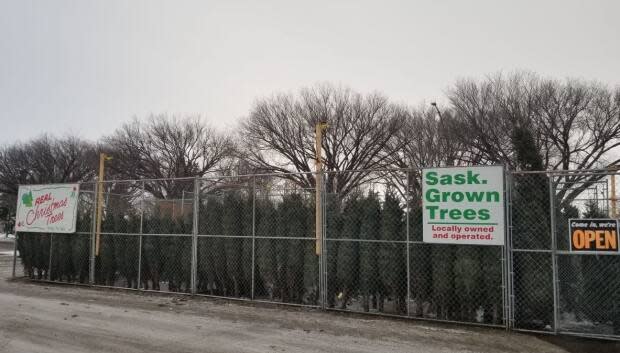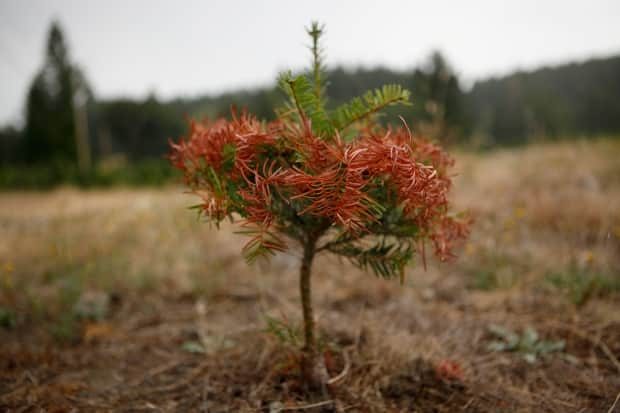Holiday headache: Christmas trees in short supply, cost more this year in Sask.

If you still haven't found the right Christmas tree for your home, retailers and industry experts say you should act sooner rather than later.
The trees are once again in short supply this year, which some say is due to increased demand.
According to the Canadian Christmas Trees Association, the industry has boomed in Saskatchewan in just the past few years. It was worth about $606,000 in 2017, but had grown to $1.3 million in 2021.
Judy Gilmour, who owns Gilmour Tree Farm near Lumsden, just northwest of Regina, says this year has been her busiest yet since opening three years ago. She's sold out of her stock of 50 trees.
Families "want to have that experience of tromping through the field and finding their perfect Christmas tree," said Gilmour.
Geordie McKay has seen the same popularity this year. He estimates he's sold about 6,000 trees at both his farm near North Battleford and the retail locations he delivers to in Regina and Saskatoon.

He believes he'll sell out his stock within the coming days.
"I think the younger generation is wanting real stuff instead of a piece of plastic made halfway around the world," said McKay. "Our trees are all recyclable. People enjoy them."
Exports are also affecting supply, according to some growers CBC spoke with. The latest Statistics Canada data — which includes the year up to the end of October — shows $2.6 million worth of trees have been exported from Canada so far in 2022.
That number was $1.7 million for the same period in 2021.
Shirley Brennan, executive director of the CCTA, says the pandemic also helped drive interest in Christmas trees, as people weren't visiting other family.
"Every little family in the [larger] family was getting trees," said Brennan. "So they've kind of kept that tradition up now for three years."
Inflation hits industry
A tree will also cost you, on average, about 10 per cent more over last year, according to the Christmas Tree Association.
Gilmour says it that stems from higher prices for farmers.
"Fertilizer has gone up," said Gilmour. "Diesel has gone up. Equipment prices have gone up in terms of repairs and upkeep, so that all has to be reflected in the prices."
Her tree prices have gone up $5 per foot this year.

Nikki Vanduyvendyk, who owns Dutch Growers in Saskatoon, first noticed her costs climb when she received her shipment of over 800 trees in late November.
"Not only the tree prices had gone up ... but also the shipping prices," said Vanduyvendyk. "Probably about an average of $15 to $20 per tree."
She says despite the increase, she expects to sell out of trees by the middle of the week.
Brennan says the high prices can take a toll on farmers and retailers, especially when there's no price drop in sight.
She hopes that will level once "everything balances out."
Climate change, loss of land affect supply
Weather extremes can have an impact on tree growth, say experts, and that could impact the future of the industry.
Richard Hamelin, a professor of forest conservation sciences at the University of British Columbia, says drought and heat — including the heat dome that affected Western Canada in 2021 — can be particularly bad.
"Especially when you have multiple years of drought, that can ... play a negative role — it can actually kill seedlings," said Hamelin. "If this is repeated year after year, that becomes a big problem."

The extremes can also cause other issues for trees, according to Kellen Wood, ground supervisor for the University of Guelph Arboretum.
Those extreme variations "can stress out a tree and [the tree] will release a hormone that pests and insects can be attracted to ... and furthermore stress it out," said Wood.
That could pose a problem for an industry that's already shrinking. According to Statistics Canada, the number of tree farms in Saskatchewan alone dropped from 41 in 2011 to 26 in 2021 — a loss of about 133 hectares of land.
In the meantime, Brennan encourages people not to panic buy and be willing to settle for a different tree than you might have wanted.
"Christmas tree farmers have really listened to consumers," she said.
"Step out of your comfort zone, 'cause we've stepped out of ours."


